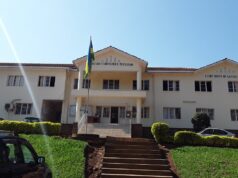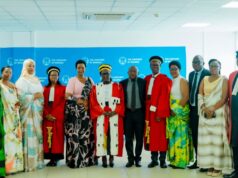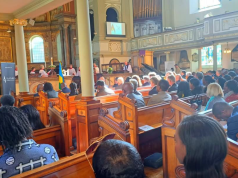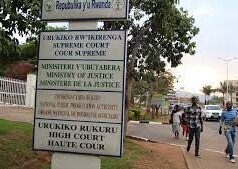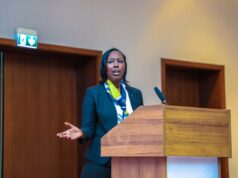
The Rwandan judiciary has started opting for legal mediation as a simple process of Alternative Dispute Resolution (ADR) that can improve court case management and reduce backlogs (pending cases).
This was decided on March 20, 2023, during the launch of this year’s judiciary mediation week campaign that follows the recent establishment of the Alternative Dispute Resolution (ADR) policy by the government of Rwanda aimed at reinforcing the judiciary to encourage court-annexed mediation.
ADR is any procedure, agreed to by the parties in a dispute, in which they use the services of a neutral party (third party) to assist them in reaching an agreement and avoiding litigation in court.
The Rwanda Judiciary, after the amendments in the 2018 civil procedure embraced the court-annexed mediation system, which was endorsed by the Alternative Dispute resolution (ADR) policy adopted by the Government of Rwanda as one of the existing initiatives to build on in expanding and enhancing the use of mediation in dispute resolution.
Current statistics show that mediation in court has incredibly contributed to the vision of the Judiciary of Rwanda, though lawyers still resist taking up the methodology in spite of its benefits.
For instance, between 2019-2022, approximately 3,000 cases were settled through mediation, and among these cases, not more than 300 had a monetary value of Rwf11,133,217,956.
Justice Dr. Faustin Ntezilyayo, Rwanda’s Chief Justice and president of the Supreme Court said this shows how mediation in court doesn’t only facilitate day-to-day responsibilities as judiciary but also have a big impact on the economy.
The President of Rwanda Bar (RBA) Moise Nkundabarashi said that the use of mediation as a process of conflict resolution by professional judicial members is relatively new to Rwanda and has met resistance and more sensitization needed.
“We are therefore at the stage of raising awareness and building the capacity of these professionals to make sure that mediation becomes part and parcel of our jurisdiction dispute resolution mechanism,” Nkundabarashi said.
Though lawyers play a key role in the justice system, the delay in the process of using ADR is underlined by many factors including lack of skills, information on the process, and lack of financial benefits as there is no specific amount legally allocated in the contracts signed with parties.
Senior lawyers say mediation is very new and lawyers are not active in mediation due to lack of seeing its benefits which calls for sensitization.
Bernadette Uwicyeza, the Secretary General Court Annexed Mediation Advisory Committee says the issue of compensation when it comes to judges, they don’t know that if the case is being mediated that there is a need for compensation which is little compared to the work involved.
For example, in Kenya, mediating lawyers are supposed to get $100, 000 at the High Court level where there are 700 mediators but they agreed to be paid $20.000.
Uwicyeza says they realize this is an issue of collaboration but also a lack of information among judges where only two or three judges are informed about the mediation structure, the process, and benefits to be able to educate others in the court system
She said lawyers resist mediation because they know they won’t be paid if they go to mediation, that is why we are talking to judges to look into these concerns of which some judges (especially commercial courts) are trying to discuss the issue of fees.
“We want them (lawyers) as stakeholders to be informed on mediation fees (scheduled payment) and how it is important at this stage. Some countries have mediation legislation including the provision to inform clients of mediation possibilities,” Uwicyeza said.
Senior Counsel Emmanuel Butare stated that through training, lawyers will know how to litigate and make mediation another source of income where everybody will get to know them for their performance.
Prof. Sam Rugenge, President of the Court Annexed Advisory Committee suggested the judiciary conducts the shift process in phases starting with the commercial and family court matters to allow people to get used to the new system instead of overhauling the whole judicial sector.
UK based Commercial Mediator, Bruce Edwards, the Head of Edwards Mediation Academy said that Rwanda is on the right track and mediation is the way to go considering the judicial success story seen today.



